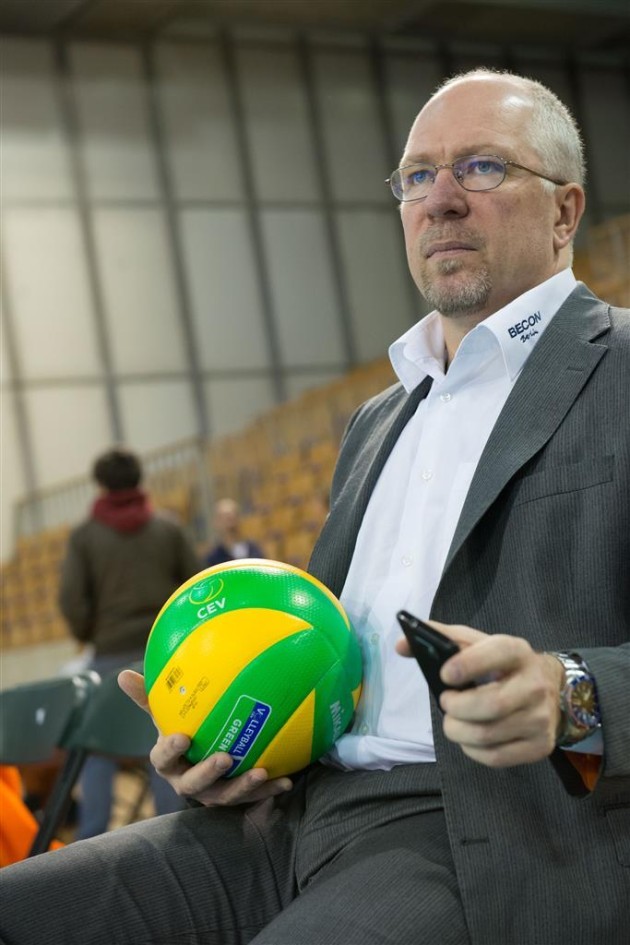Author: Mark Lebedew; Source: At Home On The Court, Photo: CEV
That might sound a little bit strange coming from someone who has over 50 articles tagged ‘Volleyball Analytics‘ on his website but I also have over 30 tagged ‘Volleyball Philosophy‘ so give me a chance to explain.

Sports Statistics are broadly speaking the numbers we collect during a matches or a few matches. They are typically collected simply and consist of some fairly basic averages and percentages. Statistics are important in helping us cut through the emotions of the match and understand more clearly where that match was won and lost. Everything that we can record and analyse in Data Volley is statistics. They give us the answer to the very imporant question of: What really happened in this match?
Sports Analytics is broadly speaking the collection and analysis of all the statistics from a very large number of matches, not just of one team but of a whole league or leagues. Really good analytics will develop new statistics and metrics to help us understand the game more deeply, especially in areas that are not covered by the traditional, mostly superficial, statistics. For analytics you need tools like Science Untangled provides. Good analytics will give the answers to two questions, in some order:
What is the most efficient use of training time?
What tactics will give my team the best chance to win the most possible matches?
There we have it. If we know the answer to these three questions, What really happened?, What should we practice?and How do we win the most matches? surely that is all we need to know.
But even the inventor of Sports Analytics*, Billy Beane**, he of Moneyball fame, discovered the limitation of this approach. Using analytics he proved he could win the most number of matches, but winning the most number of matches doesn’t guarantee winning in the playoffs, which is the ultimate goal. That is because competition asks of us one extra question:
How do I win this match, today?
Analytics is essentially about manipulating odds and probabilities in your favour, over time. But today’s match can’t wait for the post match analysis, it is being played by real people, right now. The tactics to win the most matches are not necessarily the tactics to win this match. The players to win the most matches are not necessarily the people to win this match. So what is our response? Do we do what we normally do and accept that we can’t win them all? Do we frantically change everything in the hope that something will work?
If we want to win big matches, statistics and analytics is a great starting point and can carry us nearly all the way to the finish line, but to get over that line we need something else, something more, something different, perhaps indeed something immeasurable. Perhaps in our original analytics informed (as distinct from analytics driven) model we need to build in some flexibility. Perhaps we need to allow for and create opportunities for individual creativity and inspiration. But before we can do that we first we have to accept that sports analytics is wrong.
*He didn’t really invent it, but you know what I mean.
**There is one more question that he was interested in, which was How do I build the best team? but that is less a coaching question than a management question.
About Mark Lebedew:
Mark Lebedew authors the At Home on the Court Blog. He coaches professionally in Poland, from january 2021 with eWinner Gwardia Wrocław, in season 2019/20 with Aluron Virtu CMC Warta Zawiercie and in the period 2015-2018 with KS Jastrzębski Węgiel. That follows five seasons Germany where his Berlin Recycling Volleys won three straight league titles and a CEV Champions League bronze medal. He has prior professional experience in Belgium and Italy. Mark was also Head Coach for the Australian Men’s National Team. From next season he returns to Germany, where he will lead VfB Friedrichshafen.
Mark partnered with his brother and father to translate and publish “My Profession: The Game“, the last book by legendary Russian coach, Vyacheslav Platonov.
With John Forman, he is behind the Volleyball Coaching Wizards project (link http://volleyballcoachingwizards.com/) which identifies great coaches from all levels, making their experience, insights, and expertise available to people all over the world. The project has produced multiple books, a in e-book format available here ( link to http://bit.ly/34yakou ) or in print at Amazon here (link https://amzn.to/2JRqTE6)
In 2021, he launched project Webinars and Presentations on Demand. If you are intersested for coaching presentations and webinars available on demand, click here.